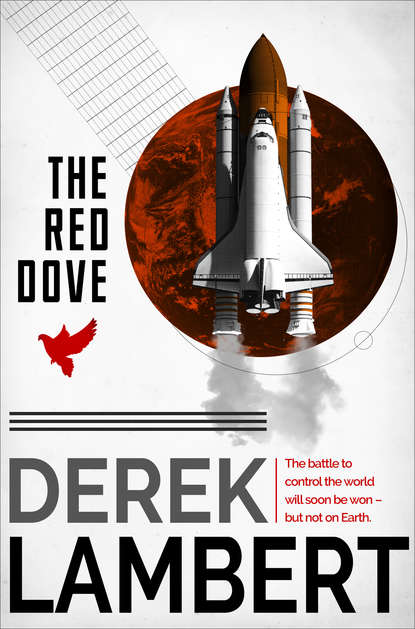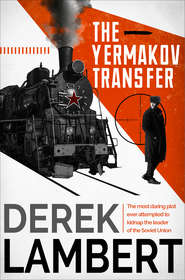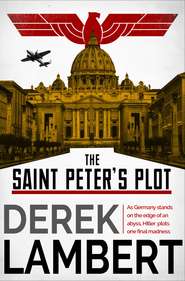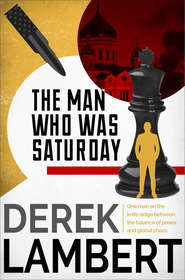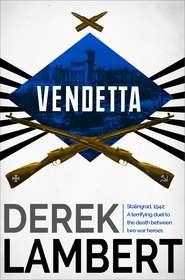По всем вопросам обращайтесь на: info@litportal.ru
(©) 2003-2024.
✖
The Red Dove
Автор
Год написания книги
2018
Настройки чтения
Размер шрифта
Высота строк
Поля
‘One: in a way you’re Talin’s double. Older, sure, and badly out of condition. But, like him, you’re an idealist. Two: you had started training for the shuttle so you’ve got a lot of common ground there. Three: Talin’s stability was slightly suspect but he had a mentor who covered up for him.’
‘As unstable as me?’
‘You weren’t unstable,’ Reynolds said. ‘You had a vestibular condition which could have been corrected.’
‘You didn’t think so at the time.’
‘Like I said, it wasn’t a risk I was prepared to take.’
‘But you can now.’
‘What I can do now,’ Reynolds said carefully, ‘is utilise the unfortunate events of the past. Talin will be sympathetic to your experiences, especially when he sees that you’re eminently sane.’
‘You’ve got two faucets,’ Massey said. ‘One marked sane, one marked nuts. You turn them on and off at will.’
‘Four: you speak Russian.’
‘I often wondered in the past whether that would be held against me.’
‘Why should it? I understand that you decided to learn it when the possibility of the Soviet-US joint venture with Apollo and Soyuz ships docking with a Salyut space station was first mooted.’
‘Some computer,’ Massey observed. ‘In fact the Apollo and the Soyuz ultimately docked directly. Any more reasons?’
‘A few.’
‘But you’re not telling?’
‘That’s right,’ Reynolds said.
Massey, disappointed with himself for trading conversation with Reynolds, said: ‘You still haven’t told me just how the hell you think I’m going to persuade a man like Talin to defect.’
‘If I explain you’ll do it?’
It would be satisfying, Massey decided, to get a concession from Reynolds before shooting him. He said: ‘I would only consider co-operating with you on one condition –’
‘That you are allowed to return to space? Don’t worry, that’s already in the pipeline. As soon as this operation is completed you are to be allocated a fresh place in a training programme for service in the shuttle.’
Massey’s thoughts blurred; the initiative left him. Without realising it he straightened his body. He saw the curve of the Moon, the bright shining globe that was Earth. Infinity beckoned. Everyone had their price.
Reynolds said: ‘So you agree?’
When he didn’t reply Reynolds took his arm and said: ‘Don’t let that gun in your belt confuse you. You don’t want to kill me now: you want to fly to the stars.’ He increased the pressure on Massey’s arm. ‘In any case that old Colt’s crocked. You don’t think I’d have walked down the beach with you if it worked, do you?’
When Reynolds finally got around to explaining how Russian scepticism to his reported mental condition would be overcome, and how Talin would be persuaded to defect Massey said: ‘But that’s real Dirty Tricks Department.’
‘Do you want to be an astronaut again?’
Beaten, Massey nodded.
Reynolds got back to the President’s ranch at 5 p.m. on Saturday. Half an hour before dinner he handed the President a cardboard folder containing five sheets of typescript. ‘The scenario for your spectacular,’ he said.
CHAPTER FOUR (#ulink_7169116a-c750-56ef-b337-d487b95dd6c2)
Many people imagine the Kremlin to be a brooding mausoleum. Nothing could be farther from the truth. On a fine day the gilded husks of its cathedrals sail majestically in the blue sky and the sunlight finds gold in its green-roofed palaces; during fog or blizzard it is baronial and snug.
For Nicolay Talin the Kremlin was a joy. Not because it was the fount of an ideology, far from it, but because its epic history appealed to the Siberian in him. As he walked through its grounds this November day, with the first snow on the ground freshly crisped by frost, with ice-dust sparkling in the sunlight, he marvelled at its fragile elegance conceived in violence.
Talin knew his Kremlin as well as he knew his spacecraft. Here in the twelfth century the natives built a wooden stockade, a kreml, to protect themselves against the Mongol hordes. Thereafter it was taken, sacked, freed, by Mongols, Tartars, Turks, Poles, Swedes … Here Ivan the Great reigned – demanding the title Tzar (Caesar) – and built the cathedrals of the Annunciation and Assumption; here was born Ivan the Terrible who terrorised his own countrymen and was not above stuffing his enemies full of gunpowder and exploding them – to his credit he built St Basil’s Cathedral, with its cluster of spun-sugar baubles, in Red Square.
Here in 1613 the Romanov dynasty was born, to last three centuries until in 1917 it reached its bloody end and Vladimir Ilyich Lenin installed the Supreme Soviet in the Grand Palace.
Napoleon reached the Kremlin, Hitler failed; both were ultimately beaten by a land and its people whose spirit was crystallised here in the Kremlin, and both should have known better.
Talin and Sonya often visited the parts of the Kremlin grounds open to the public when Talin was on leave. They met beside the dumb 200-ton hulk of the Tzar Bell, which crashed from its tower during the fire of 1737, they walked the cobbled squares, they held hands watched inscrutably by a bronze and granite Lenin.
This morning Sonya wasn’t with him, she was rehearsing at the Bolshoi. But he feit she was beside him and smiled at her, and two fur-hatted militia stamping through Cathedral Square agreed that the blond, arrogant-looking man in the Western-styled topcoat and sealskin shapka was as drunk as Ivan’s Bell Tower, knocked out of alignment by Napoleon’s gunners.
They were not to know that, later that day, he intended to ask the girl they couldn’t see to marry him.
But first he had to meet Oleg Sedov in a bar off Petrovka Street, not far from the Bolshoi. He left the Kremlin and walked across Red Square, heels tapping on the cobbles. Sometimes Talin felt like grabbing a clutch of gawping tourists and telling them that its real name was Krasnaya Ploshchad, Beautiful Square, and that Red had nothing to do with politics, only its colour. Or hauling them off to see the real Russia outside the Intourist guide books. Siberia, of course; or the bar where he was meeting Sedov for that matter.
The cold crackled in his nostrils, he breathed it deep into his lungs as others inhale cigarette smoke.
On the far side of the Square he climbed into his red Moskvich, an ageing but neat little car that butted through the sparse traffic.
He was lucky to have a car, but he was a cosmonaut and therefore one of the élite, like authors (approved by the State), officers of the Party and the Services, academics, doctors, footballers … Privilege it was true, but that didn’t bother him. He was entitled to it and, in his book, Communism should be the equal distribution of wealth not poverty.
Sedov thought otherwise.
You could see it the way he dressed as he leaned against the bar peeling shrimps and small crabs and dropping their shells on the floor. His bruised shoes looked as though they were made from cardboard, his fawn suit beneath his blue parka was East German rubbish tailored to fit a coathanger.
Talin had come to tell Sedov that tonight he was going to propose to Sonya; he told him most things.
‘Beer?’
Talin nodded, pointing at the plate of crustacea, prawns on a good day but not today. ‘And some of those.’
Sedov ordered two brown bottles, fluted like barley sugar, of tepid beer, black bread and more seafood. The bar, as basic as a barn, was crowded with men, cheeks polished by the cold, talking and guzzling. Listening while Sedov ordered, Talin picked up snatches of football – Dynamo’s prospects – sex, wages … no politics.
They drank. Sedov wiped foam from his lips. ‘You’re looking remarkably cheerful,’ he said.
‘I’ve got reason to be.’
‘Good news?’
‘I think so.’
‘I have news, too. From the First Deputy Commander-in-Chief of the Soviet Air Force.’





